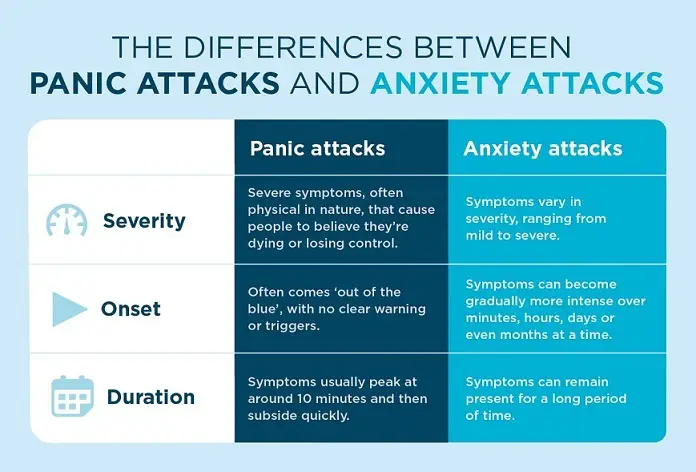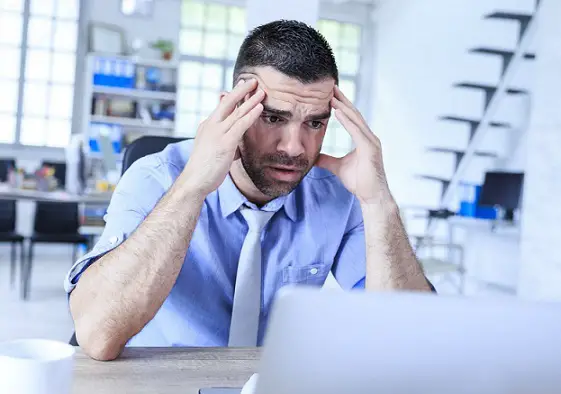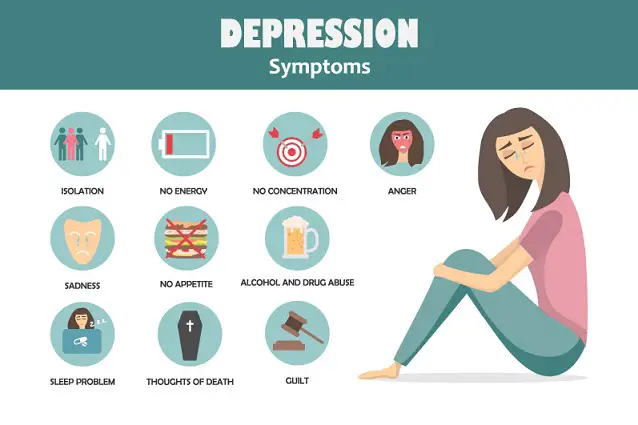
Anxiety Attack Vs Panic Attack
Anxiety Attack Vs Panic Attack
A panic attack is usually one that comes about because of fear. This is called panic because of fear. It could be a mental problem. While anxiety attacks may be similar, there is a big difference between the two.

What is a Panic Attack?
According to research, the risk of panic attacks has increased in most people. One statistic has claimed that about 30 percent of the city’s population faces a panic attack at least once in their lifetime.
According to a journal called Diagnostic and Statistics Manual, All of the Mental Disorders, a panic attack is usually a type of mental fear caused by any sudden event. It can go away on its own within the next few minutes…
What are the symptoms of a panic attack? |
|
Sometimes, when a panic attack occurs, the person cannot recognize himself and others.
What is an Anxiety Attack?
Anxiety attacks are not a problem of psychology. Different people experience attacks differently. The problem of anxiety attacks comes when a person is troubled for a long time due to some reason.
Anxiety attacks are the ones whose anxiety can cause them to attack. In addition, feelings of tension and muscle tension can increase the risk of an attack.
However, the risk of an anxiety attack may be less severe than a panic attack.
What are the symptoms of an anxiety attack?
The symptoms of an anxiety attack are also very similar to those of a panic attack:
- panic button
- scared of
- increased heartbeat
- have trouble seeing
- severe chest pain
- feeling short of breath
- bad thoughts
What Are The Causes Of Anxiety Attacks?
- work pressure
- economic pressure
- family or relationship problems
- deteriorating relationship with the partner
- changing life circumstances
Multiple sclerosis (MS), diabetes or other chronic diseases that have been treated for a long time.
How to understand the difference between an anxiety attack and a panic attack?
If seen, the symptoms of anxiety and panic attacks are almost the same, so it can be tough to tell the difference between them.
Here are some tips that can help you understand the difference between an anxiety attack and a panic attack:
Symptoms of an anxiety attack can usually occur at any time without triggering the condition. At the same time, panic attacks can occur due to increased levels of stress or depression.
The symptoms of a panic attack are intense, but symptoms gradually intensify and can be cured with the help of treatment. Whereas the symptoms of an anxiety attack come on suddenly and can last from an hour to years, and it can get better on its own in a few minutes.
Attack attacks usually subside after a few minutes, while panic attack symptoms can last longer.
What can cause anxiety attacks and panic attacks?
The symptoms of an anxiety attack may not be detected in advance. It comes suddenly. However, the symptoms of panic attacks can be recognized in time, and their symptoms can also be prevented from progressing:
- too much work stress
- social tension
- driving too much
- too much caffeine intake
- addicted to alcohol or drugs
- any chronic disease or chronic pain
- drug reaction or interaction
- some phobia
- bad memories of the past
What conditions can increase the risk of anxiety attacks and panic attacks?
The following conditions may increase the risk of anxiety attacks and panic attacks:
- restless mind
- impaired mental health
- depression problem
- bipolar disorder
- Family members have a history of anxiety attacks and panic attacks
- Any chronic medical condition, such as a thyroid disorder, diabetes, or heart disease
- alcohol or drug abuse
- Tension going on in personal or professional life
- Divorce or breakup, or loss of an acquaintance
- Remembrance of a traumatic event in life
- If we look at the statistics, women are more prone to anxiety and panic attacks than men.
How to deal with anxiety attacks and panic attacks?
Consume Chamomile:
The mind can be calmed with chamomile medicine. However, always use it only on the advice of a doctor. Also, cognitive-behavioural therapy (CBT) and antidepressant medications can be used to stop the anxiety disorder.
Exercise every day:
Exercise daily to relax the mind and body.
Sleep:
Get plenty of sleep so you can lower your tone. Try to get at least eight hours of sleep every day.
Deep breathing:
Sit down and take a deep breath in case of sudden panic or dizziness. Take a sharp breath in through your nose first. Then stop breathing a little and slowly take long breaths.
Apart from these, it would help if you also did the following tests at the given time:
- physical examination
- blood test
- heart rate test
With all these measures, you can tell your problem to a close and trusted person.
You must ask your doctor if you have any problem-related with anxiety and panic attacks.
failure, fear of failure, fear of failure, fear of procrastination, fear of failure words, don’t be afraid to fail, fear of failure worry, don’t be afraid to fail, fear failure book.







